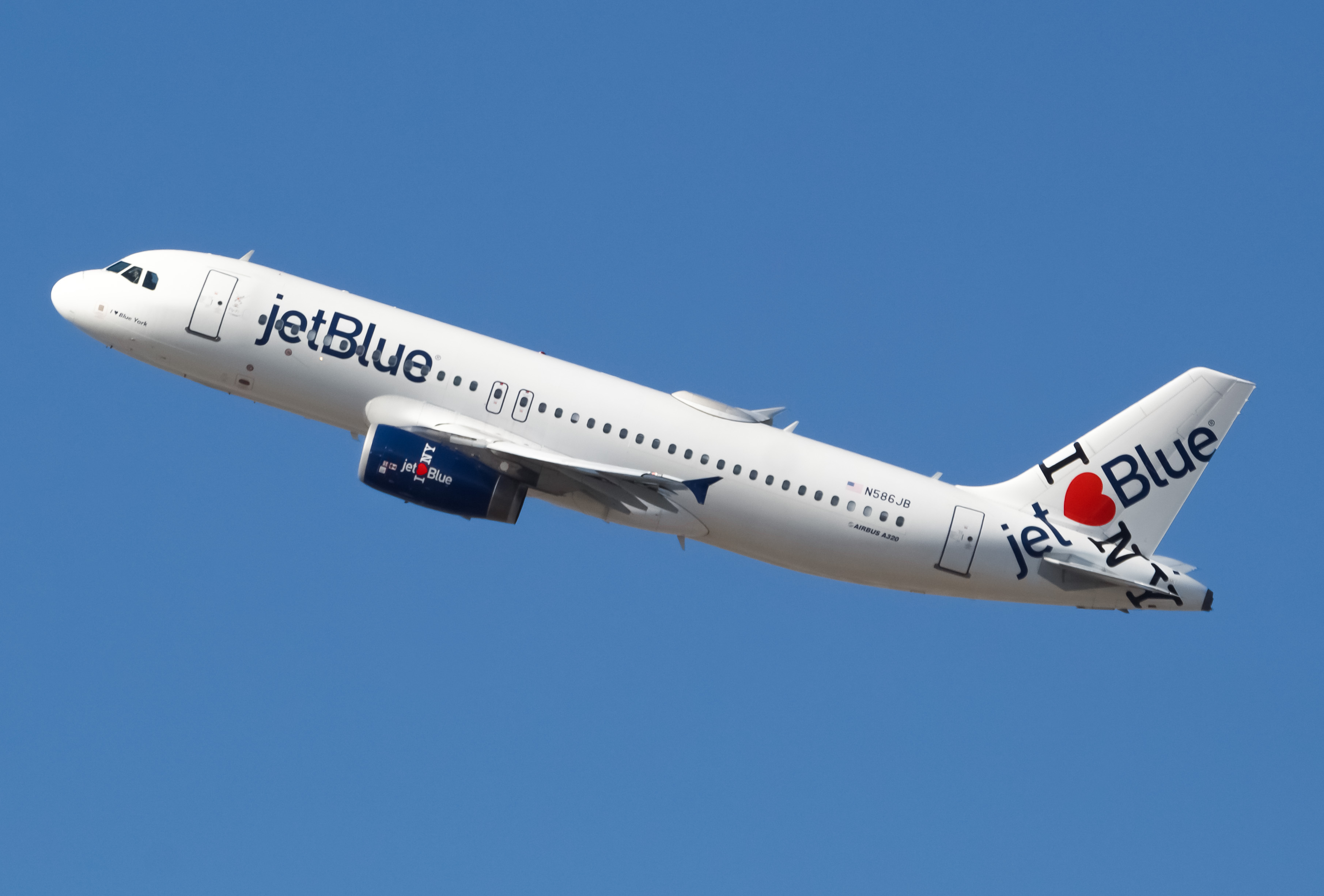Within its short lifetime, JetBlue has become a beloved carrier with an innovative product and low-cost business model. It has grown rapidly to become a major U.S. airlinesSeeing success throughout its first 20 years in existence. However, if the carrier had its way, it would have grown even more from mergers throughout the past decade.
JetBlue’s first merger target was low-cost carrier Virgin America. A San Francisco-based startup, Virgin America was very similar to JetBlue: both focused on offering low-cost travel options with an elevated travel experience, both operated a fleet of Airbus A320 family aircraft, and both had a positive reputation within the industry. Fleet commonality and similar business models made a strong case for a merger between the two. Additionally, the fact that JetBlue’s network was largely concentrated on the East Coast while Virgin America was on the West meant that the combined carrier expanded its network and customer base.

However, the geographic factors that made Virgin America an attractive target also acted as a massive selling point for Seattle-based Alaska Airlines. Alaska Airlines, who focused their routes on the West Coast, also made a bid to acquire Virgin America in hopes of further solidifying its position as a West Coast airline. In the end, Alaska was willing to pay more for the deal, leaving JetBlue without a merger partner. JetBlue continued to grow on its own, improving its product and entering new, mostly leisure-oriented markets.
However, another opportunity to grow through consolidation presented itself recently, when Frontier announced its intention to merge with ultra-low-cost carrier Spirit Airlines. Weeks after this announcement, JetBlue made a bid to acquire Spirit as well, and offered more money per share for the acquisition. Ultimately, Spirit is siding with Frontier, having rejected an earlier JetBlue bid, forcing the airline to respond with a "hostile" bid just yesterday. While a merger with JetBlue would boost the combined carrier’s East Coast presence (specifically in Florida), other factors, such as regulatory approval and differences in business models, serve as significant flaws in the proposed deal. Once again, JetBlue has found itself without a merger partner. However, given the success of the carrier’s products, it is likely that JetBlue will continue to expand its offerings without the assistance of consolidation.
Virgin Australia Ends Canberra International Drought with Historic Nonstop Bali Service » Probe Into Catastrophic Air India Flight 171 Crash Leans Toward Deliberate Pilot Action Despite New Whistleblower Claims » This Week in Aviation: The 10 Stories That Mattered Most »
Comments (0)
Add Your Comment
SHARE
TAGS
INFORMATIONAL JetBluemergeracquisitionpartnerSpiritFrontierRECENTLY PUBLISHED
 US F35C Stealth Fighter Intercepts and Destroys Iranian Shahed 139 Drone in the Arabian Sea
Tension in the Middle East reached a kinetic flashpoint as a U.S. Navy F-35C Lightning II stealth fighter intercepted and destroyed an Iranian unmanned aerial vehicle (UAV) that posed a direct threat to the USS Abraham Lincoln (CVN-72) carrier strike group. The encounter marks a significant escalation in the ongoing maritime shadow war between Washington and Tehran.
STORIES
READ MORE »
US F35C Stealth Fighter Intercepts and Destroys Iranian Shahed 139 Drone in the Arabian Sea
Tension in the Middle East reached a kinetic flashpoint as a U.S. Navy F-35C Lightning II stealth fighter intercepted and destroyed an Iranian unmanned aerial vehicle (UAV) that posed a direct threat to the USS Abraham Lincoln (CVN-72) carrier strike group. The encounter marks a significant escalation in the ongoing maritime shadow war between Washington and Tehran.
STORIES
READ MORE »
 American Airlines Plans Full Widebody Free Wi-Fi Expansion After Internal Meeting Leak
A leaked recording from a recent American Airlines employee meeting has revealed that the carrier intends to equip its entire widebody fleet with free high-speed Wi-Fi. As of February 2, 2026, the carrier is moving to close the gap on its long-haul international product, expanding the AT&T-sponsored service that debuted on domestic routes just last month.
STORIES
READ MORE »
American Airlines Plans Full Widebody Free Wi-Fi Expansion After Internal Meeting Leak
A leaked recording from a recent American Airlines employee meeting has revealed that the carrier intends to equip its entire widebody fleet with free high-speed Wi-Fi. As of February 2, 2026, the carrier is moving to close the gap on its long-haul international product, expanding the AT&T-sponsored service that debuted on domestic routes just last month.
STORIES
READ MORE »
 Air India Pulls Boeing 787-9 From Service After Serious Fuel Switch Discrepancy Report
Air India has taken the preemptive step of grounding one of its Boeing 787-9 Dreamliners following a technical report involving a critical fuel control switch malfunction. The decision, confirmed today, February 2, 2026, underscores the carrier’s heightened focus on safety and operational integrity as it continues its massive fleet transformation under the Tata Group.
STORIES
READ MORE »
Air India Pulls Boeing 787-9 From Service After Serious Fuel Switch Discrepancy Report
Air India has taken the preemptive step of grounding one of its Boeing 787-9 Dreamliners following a technical report involving a critical fuel control switch malfunction. The decision, confirmed today, February 2, 2026, underscores the carrier’s heightened focus on safety and operational integrity as it continues its massive fleet transformation under the Tata Group.
STORIES
READ MORE »



